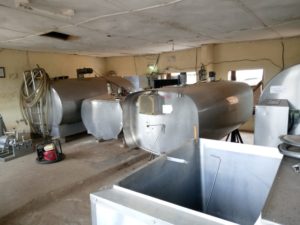Soya farmers reap big from bulking with local cooperative
Soya bean farmers in Acholi sub region who bulked their crop with a local cooperative at a time when market rates had dropped precipitously are starting to smile following a surge in prices over the last four weeks.
The price for kilogram of soya beans which had dropped to Shs 600 has now doubled to Shs 1,200.
According to Robert Wagwanga, the Chairperson, Bobi United Grain Producers Cooperative in Omoro district, some farmers took advantage of the co-op’s bulking services to ride out the trying period and are now laughing their way to the bank.
“We have so far sold 150 metric tonnes of soya beans to bulk buyers from Minakulu, who then export it to neighbouring Kenya,” he revealed.
Wagwanga however said that many farmers who were impatient or sold their crop earlier because of urgent financial needs have missed out.
“We have over 700 farmers who grew soya beans this season but only 150 bulked at the cooperative store. Many farmers opted to sell off their produce individually because of urgent needs,” he said.
Geoffrey Ojok, a soya bean farmer from Omel Sub County in Gulu district said that he is happy that his patience has paid off.
“I managed to earn Shs 480,000 from my four bags of soya beans. I am happy that I did not sell my soya beans when prices were very low,” he said.
Achola Milly, a soya bean farmer from Kiceke village, Gulu district harvested five bags of the crop and earned Shs 600,000 from their sale.
“This is the money I am going to use to pay school fees for my daughter who is in senior four,” said the relieved mother whose daughter resumes school next week.
Mary Akwero, another soya bean farmer from Kalongo Town Council in Agago district said the price increase has rejuvenated her morale to grow the crop.
Akwero who also grows maize and cotton for commercial purposes said:
“I had made up my mind to stop growing soya beans because of the drop in prices. But I will now continue growing it. The new price has made me smile again.”
Charles Odyek, the Chairperson of Lukole in Agago district says farmers have started bulking their soya beans at the co-op’s store after prices of the crop started to increase.
“We already have 400 metric tonnes of soya harvested and farmers are still harvesting more. I expect more 1,200 metric tonnes to be harvested,” Odyek said.
He also predicts that the price of soya bean will further increase.
Geoffrey Komakech, the Chairperson of the business community in Otwee Town Council, Amuru district confirmed the development which has been welcomed by farmers.
“For the last two weeks, we have had bulk buyers coming from Lango to buy soya beans at Shs 1, 200 per kilogram.
Soya bean has in recent years become an important source of income for many farmers in Acoli and Lango sub regions.
Buy your copy of thecooperator magazine from one of our country- wide vending points or an e-copy on emag.thecooperator.news
The post Soya farmers reap big from bulking with local cooperative appeared first on The Cooperator News.

